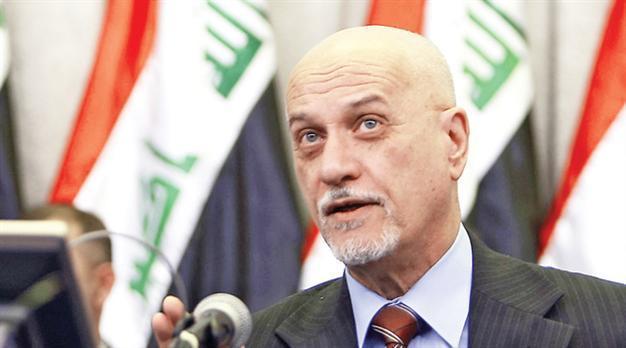Iraq severely warns Total over Kurdish oil
BAGHDAD

Shahristani forces Total to make a clear choice between Arbil and Baghdad.
Iraq has given French energy giant, Total, an ultimatum to either end its dealings with the Kurdistan Regional Government (KRG) or sell its stake in a giant oilfield in southern Iraq.Baghdad’s central government was considering offering foreign oil firms more lucrative contracts, Iraq’s deputy prime minister responsible for energy affairs, Hussein al-Shahristani, said Aug. 12. The deputy prime minister admitted that a recent auction of exploration blocks in a southern oilfield had not been as successful as officials had hoped.
Arbil has requested Total withdraw from this field, and has given the company a certain period by which to put an end to the issue by either selling its share to another company or ending its contract with the KRG, al-Shahristani said, Agence France-Presse reported.
He did not specify the time by which Total, which said it signed an oil exploration deal with the KRG July 31, needed to make a decision.
KRG authorities have signed dozens of deals with foreign energy firms, including Turkey based Genel Energy, on a production-sharing basis. These contracts have been regarded as illegal by Baghdad, which insists all such deals must go through the central government’s federal oil ministry and prefers per-barrel service fees.
The agreement between Total and the KRG came as relations between the autonomous region and Baghdad fell to a new low over multiple festering disputes, including oil contracts and territorial claims.
Within a few weeks, American oil firm Chevron and Russia’s Gazprom also inked deals with the KRG, after American giant ExxonMobil signed an agreement with the region last year. Meanwhile, British oil services firm Petrofac warned that customers were delaying the award of contracts in its core Middle East market from this year to next, raising analysts’ concerns about its profit outlook.
Petrofac, which designs and builds oil and gas infrastructure, counts state-run national oil companies among its largest customers. Petrofac was seeing a slowdown in awards in Iraq and Saudi Arabia in particular, where it is bidding for contracts to construct the pipelines and plants that help extract and process oil and gas, Chief Financial Officer Tim Weller told Reuters.
“The economic situation may be one of the drivers, but we’re not seeing awards or processes being canceled,” Weller said.
The slowdown in contract awards was difficult to attribute to just one factor, he said.
Separately, Italy’s Eni has been unable to import Iranian oil for a second month running, due to bank payment and insurance problems, despite having European Union clearance to receive the oil to recover $1 billion in debts, industry sources said.
An EU ban on imports of oil from Iran came into force July 1, but the bloc exempted Eni to allow it to recoup long-standing debts it is owned by Tehran for work it undertook in the energy sector, which are being paid in oil.
















